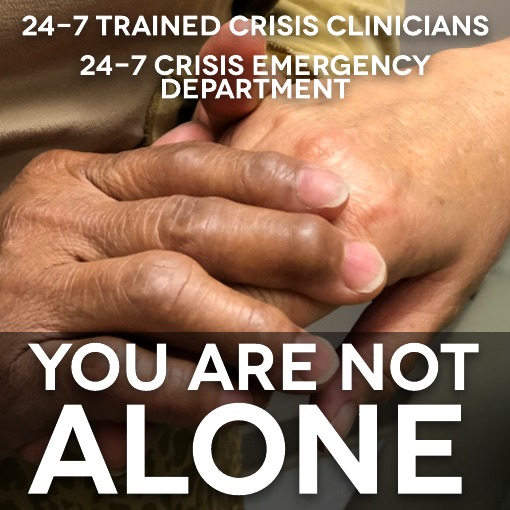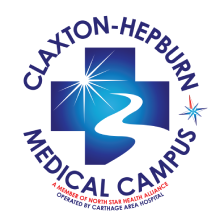Emergency Care
Serving St. Lawrence County & the Surrounding Areas
If you're experiencing chest pains, sudden dizziness or difficulty breathing,
when in doubt—always call 911. When you’re facing an emergency,
every second makes a difference, which is why we’re committed to
bringing you quicker and more efficient care—closer to home.

CHMC ED Psychiatric Crisis Hotline 315-713-5169.
Trained crisis clinician's are available 24 hours/7 days a week.
At Claxton-Hepburn, our emergency and intensive care teams work hard to provide:
- Average wait times from patient arrival to intake under five minutes (while
our goal is to always treat patients within this amount of time, average
wait times may increase when treating critical patients or those with
life-threatening conditions).
- Efficient, personalized treatment, with emergency stays averaging 7 percent
shorter than the national standard.
- Coordinated communication between departments to provide you with quick,
efficient diagnosis and treatment.
- 24/7 stroke care coverage with prompt and accurate diagnosis of stroke.
- Telemedicine partnership with Upstate University Hospital in Syracuse should
you need immediate access to a stroke or trauma care specialist.
- 24/7 mental health evaluation for immediate psychiatric care for children
and adults.
- Compassionate and attentive emergency staff committed to providing you
with exceptional care.
For non-life-threatening medical conditions or after-hours care, visit our
Convenient Care Center.
How Do I Know if I’m Having a Medical Emergency
Some emergencies are obvious, such as severe injuries or passing out. Some
symptoms, however, may make you question whether you’re dealing
with an emergency. It is generally better to be safe than sorry, so call
911 if you believe you or someone near you is having an emergency.
Below are some symptoms that could be signs of a medical emergency:
- Sudden, severe chest pains
- Bleeding that will not stop
- Choking
- Sudden changes in memory or behavior
- Slurred speech or difficulty speaking
- Sudden, severe abdominal pains
- Loss of consciousness
- Sudden weakness (difficulty raising limbs, etc.)
- Nonstop vomiting or diarrhea
- Coughing up blood
When you need to call 911, be sure to speak calmly and clearly. There is
no guarantee that the dispatch operator will be able to pinpoint your
location, so you will need to provide them with precise information. It’s
never a bad idea to have an emergency plan in place so that you are prepared
for these situations.

.1).png) Claxton-Hepburn
Claxton-Hepburn